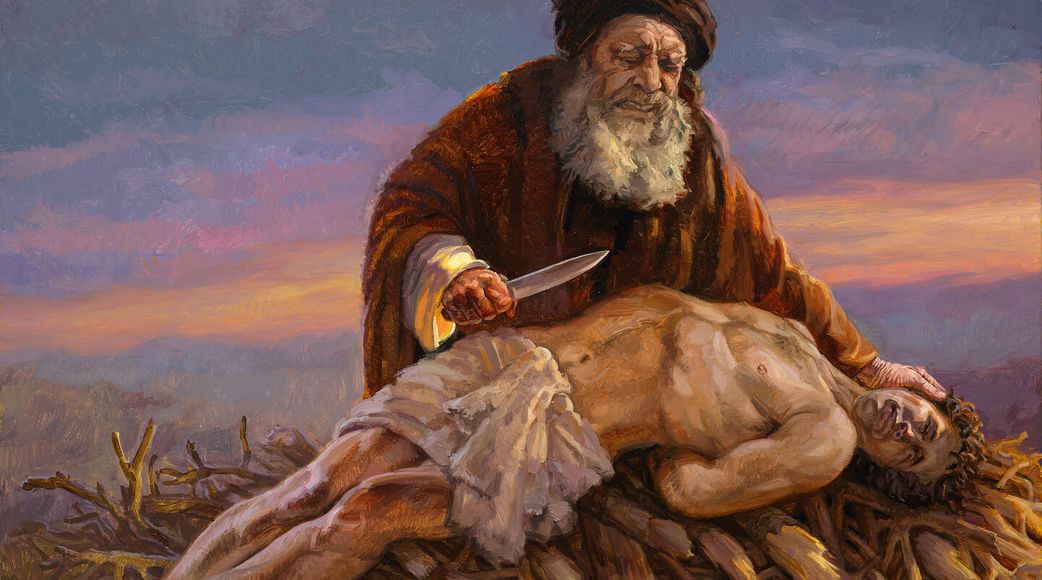LIFESTYLE

7 DISTURBING AND PRIMITIVE BELIEFS DOCUMENTED IN THE BIBLE
The Bible stands as one of the most influential and debated books in history.
For billions, the Bible is a sacred scripture—an unwavering guide for faith, morals, and family values. For others, it’s a complex anthology of ancient laws, tribal tales, myths, miracles, and metaphors—some uplifting, others profoundly unsettling.
Then there are those caught in the middle—readers who find themselves asking, "Did God actually command that? Did this really happen? Why does this sound so brutal?"
While the Bible offers timeless wisdom and soul-stirring poetry, it also contains passages marked by bloodshed, patriarchy, vengeance, slavery, and harsh laws that clash with modern principles of justice and human dignity.
And when these verses are cherry-picked or, worse, weaponized, they can be twisted to justify terrible acts.
The Bible was written across different eras by different people living in different sociopolitical realities, but does that excuse its most troubling commands and beliefs?
Let’s walk you through some of the darkest, most brutal ideas the Bible presents, and talk plainly about why they still raise eyebrows, even today.
1. Slavery is approved
)
One of the Bible’s clearest endorsements of slavery comes in Exodus 21:20–21:
“If a man beats his male or female slave with a rod and the slave dies as a direct result, he must be punished, but he is not to be punished if the slave recovers after a day or two, since the slave is his property.”
There’s no ambiguity here. Slavery wasn’t just tolerated, it was structured, legal, and the enslaved were explicitly referred to as property. Rather than condemning slavery, the Bible outlines how to manage it. In Leviticus 25:44–46, God tells the Israelites they can buy slaves from foreign nations and pass them down as inheritance.
How does a modern reader reconcile this with the idea of a just and loving God?
2. Human sacrifice
The story of Jephthah in Judges 11:30–39 is often skimmed over, and for good reason. It’s horrifying. Jephthah makes a vow to God before battle:
“Whatever comes out of the door of my house to meet me... will be the Lord’s, and I will sacrifice it as a burnt offering.”
He wins the battle, but when he returns, his daughter runs out to greet him. The Bible says he “did to her as he had vowed.” No angel stops him. No ram in the bush. No condemnation. Just a horrifying silence that implies approval, or at least acceptance.
3. Kill the bride if she’s not a virgin
In Deuteronomy 22:20–21, if a man discovers his wife was not a virgin on their wedding night, she is to be dragged to her father’s house and stoned to death:
“She has done an outrageous thing in Israel by being promiscuous while still in her father’s house. You must purge the evil from among you.”
There is no mention of the groom’s sexual past, only hers. The law is brutal, misogynistic, and alarmingly final. Even if she had been sexually assaulted, the law doesn’t ask. Her body is property. Her virginity is currency. Her death is punishment for violating male honour.
4. Mass rape and murder as holy war spoils
)
In Numbers 31, after a war with the Midianites, Moses gets angry because the soldiers spared the women and children. So what does he command in verse 17–18?
“Now kill all the boys. And kill every woman who has slept with a man. But save for yourselves every girl who has never slept with a man.”
Let that sink in. Kill the children. Kill the women. And keep the virgin girls. For what, exactly? It’s not spelt out, but the implications are crystal clear. This isn’t justice, it’s genocide and sex slavery, wrapped in divine approval.
5. Sacrificing sons for disobedience
In Deuteronomy 21:18–21, if a son is rebellious and disobedient, parents can take him to the elders and have him stoned to death by the community.
“Then all the men of his town shall stone him to death. You must purge the evil from among you.”
What crime did he commit? Drinking too much and being stubborn. Imagine if that law applied today, there would be no teenagers left.
6. Wives as spoils of war
Deuteronomy 21:10–14 permits Israelite men to take beautiful women from conquered nations, force them into marriage, and discard them at will:
“If you are not pleased with her, let her go... but you must not sell or treat her as a slave.”
This reads as conquest, misogyny and male dominance. A woman’s body becomes a prize for victory, her consent irrelevant. This law doesn’t protect women, it legalises their subjugation.
Women’s place is in the Bible? Nonexistent.
7. Eternal torture for finite sins
)
The doctrine of hell as an unending torment for those who don’t believe or sin is perhaps the most terrifying belief in Christianity. In Mark 9:43, Jesus says:
“It is better for you to enter life maimed than go into hell, where the fire never goes out.”
Infinite punishment for finite mistakes? It feels extreme. It feels cruel. It feels disproportionate. And yet it’s core Christian doctrine.
These passages shouldn't be overlooked. They deserve to be questioned and challenged. If our sense of morality today is more compassionate than some of the Bible's commands, it may simply mean we've outgrown some of its darkest concepts—and that's perfectly okay.
"This represents a significant development in our ongoing coverage of current events."— Editorial Board









